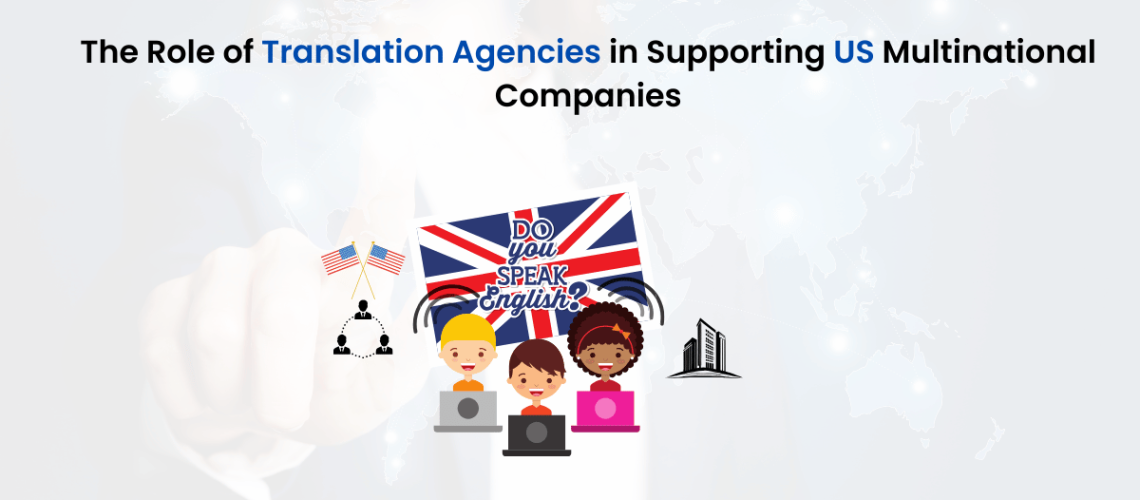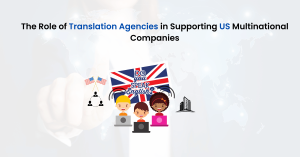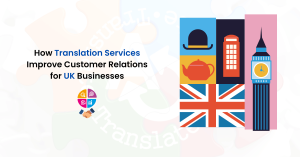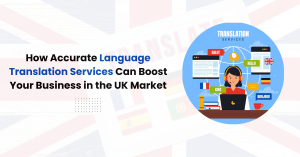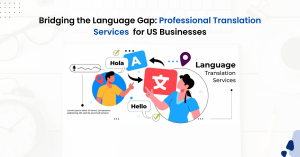In today’s globalised business landscape, effective communication across linguistic barriers has become a crucial prerequisite for the success of multinational companies. As US-based corporations expand their reach worldwide, the need for reliable translation services has never been more pressing. Translation agencies have emerged as indispensable partners, enabling these companies to navigate the complexities of multilingual operations and forge meaningful connections with diverse international stakeholders.
Global Expansion Challenges for US Companies
Expanding into international markets presents many challenges for US-based multinational corporations. The biggest challenge is the language barrier, which can prevent effective communication with customers, partners, and regulatory bodies. Even though English is widely used in business, not being able to connect with local audiences in their own languages can limit a company’s growth and competitive edge.
1. Overcoming Language Barriers
Relying only on bilingual employees isn’t enough, as even fluent speakers can struggle with translation nuances. Professional translation services are better equipped to handle these challenges, ensuring the correct meaning and tone are accurately conveyed across different languages.
2. Navigating Legal and Regulatory Complexities
Multinational companies also face complex legal and regulatory requirements, often needing to translate important business documents. Contracts, patents, financial reports, and employee handbooks require precise translation to meet local laws and avoid costly errors. Translation agencies specialising in these areas can ensure these translations are both accurate and legally compliant.
The Essential Role of Translation Agencies
Translation agencies have become crucial partners for US multinational companies, offering a range of services to meet the diverse language needs of global operations.
1. Certified and Notarized Translations
Translation agencies provide certified and notarized translations, which are essential for official and legal purposes. These translations are required for tasks like filing patents, registering a company, or submitting financial documents to regulatory authorities. Agencies use certified linguists to ensure these translations meet strict requirements.
2. Localization and Cultural Adaptation
Effective global expansion goes beyond word-for-word translation. It requires understanding local cultural nuances. Translation agencies offer localisation services, adapting content, imagery, and messaging to suit different markets. This cultural sensitivity helps companies connect genuinely with international customers and partners.
3. Managing Multilingual Communication and Content
Good communication is vital for any multinational business. Translation agencies help manage multilingual content, ensuring that business communications, employee handbooks, marketing materials, and websites are available in various languages. This makes the company more inclusive and enhances the customer experience.
4. Industry-Specific Expertise
Many translation agencies specialise in specific industries like finance, law, or technology. This expertise allows them to provide services tailored to the unique terminology, formatting, and regulatory needs of each sector. For companies operating in complex global markets, this specialised knowledge is invaluable.
5. Scalability and Flexibility
As multinational companies grow, their need for translation services can change quickly. Translation agencies offer scalability and flexibility to handle varying demands, whether it’s a sudden increase in documents or urgent project support. This ensures the company’s global operations remain smooth and efficient.
The Impact of Good Translation on Multilingual Success
Quality translation services are vital for the success of US multinational companies. Accurate and culturally appropriate translations can greatly influence various aspects of a company’s global operations.
1. Building Brand Reputation and Customer Loyalty
When companies communicate with international audiences in their native languages, it shows they care about and understand their customers’ needs. This cultural sensitivity can boost the company’s reputation and build strong customer loyalty worldwide.
2. Meeting Regulatory Requirements and Avoiding Legal Issues
Accurate translations of legal and financial documents are essential for staying compliant with regulations and avoiding legal problems. Translation agencies with expertise in these areas help companies navigate international laws, protecting their interests and reputation.
3. Promoting Smooth Collaboration and Productivity
Effective communication is key to successful global teamwork. Translation services help companies share information easily, fostering productive partnerships, improving internal operations, and encouraging innovation across different regions.
4. Discovering New Market Opportunities
To succeed in new international markets, understanding local languages and cultures is crucial. Translation agencies help companies overcome language barriers, opening up new growth opportunities and expanding their global reach.
The Future of Translation Services for US Companies
The role of translation agencies is becoming even more important as global business changes and grows.
1. Advancements in AI and Machine Learning
New technologies like artificial intelligence and machine learning will make translation services faster, more accurate, and easier to scale. While human translators are still necessary for important and complex content, these technologies will help provide quick and affordable translations for many uses.
2. Optimising Multilingual Content
As companies aim to give their global customers a smooth and personalised experience, translation agencies will help by optimizing content for different languages. This includes using data to understand language preferences, adapting content to fit local cultures, and keeping brand messaging consistent in all markets.
3. Combining Localisation with Global Expansion
Translation services will be more integrated with strategies for entering new international markets. Agencies will offer not just language skills but also cultural knowledge, market research, and strategic advice to support global growth.
4. Collaborative and Flexible Partnerships
The relationship between companies and translation agencies will become more collaborative and flexible. Agencies will work closely with clients to create custom workflows, use real-time communication tools, and provide proactive support to meet the changing language needs of global businesses.
Conclusion
As US multinational companies continue to expand their global footprint, the role of translation agencies has become increasingly indispensable. These specialised service providers offer a comprehensive suite of linguistic solutions that enable seamless communication, regulatory compliance, and cultural adaptation – all of which are essential for success in the modern, interconnected business landscape.

